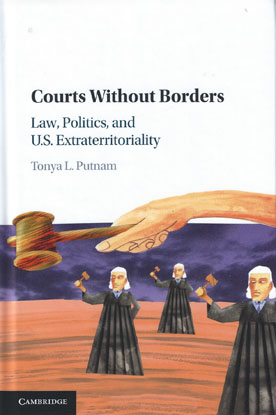
Courts without Borders is the first book to examine the politics of judicial extraterritoriality, with a focus on the world's chief practitioner: the United States.
For much of the post-World War II era, the United States has been a frequent yet selective regulator of activities outside its territory, and US federal courts are often on the front line in battles over the extraterritorial reach of US law.
Foreign governments often find this extraterritoriality upsetting both in principle and in practice. Indeed, when a US court decides to apply US law to extraterritorial disputes it is bringing the regulatory power of the United States to bear in ways that determine who gets what and how.
This volume proposes a general theory of domestic court behavior to explain variation in extraterritorial enforcement of US law, emphasizing how the strategic behavior of private actors is important to mobilizing courts and in directing their activities.